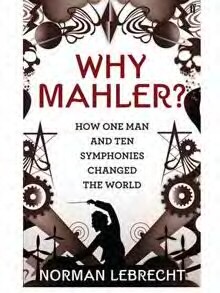Life is really easy if you are in the business of refuting “anti-Semites” in the Mainstream Media. There is a ridiculously low standard for arguments and an easy confidence that contrary voices will not be heard.
Bret Stephens of the Wall Street Journal has a predictably vacuous column on the comments of Karel De Gucht–a topic previously discussed here. Mr. De Gucht stated, “Do not underestimate the Jewish lobby on Capitol Hill.” Stephens says that the comment dispenses with “the usual fine-grained, face-saving distinction about the difference between a ‘Jewish’ and an ‘Israel’ lobby.”
What makes it so easy for Stephens is that he doesn’t have to actually provide any data showing the relationship between Jews and the Israel Lobby. It’s enough to simply say that De Gucht failed to make the distinction to brand him an anti-Semite. Of course, it wouldn’t have mattered if he referred to the Israel Lobby when talking about “the grip [the Lobby] has on American politics—no matter whether it’s Republicans or Democrats.” That too would doubtless cast him as an anti-Semite. Titling their book The Israel Lobby and U.S. Foreign Policy certainly didn’t prevent John Mearsheimer and Stephen Walt from being labeled anti-Semites.
Stephens uses the same tactic in dismissing De Gucht’s statement that “There is indeed a belief—it’s difficult to describe it otherwise—among most Jews that they are right. And it’s not so much whether these are religious Jews or not. Lay Jews also share the same belief that they are right. So it is not easy to have, even with moderate Jews, a rational discussion about what is actually happening in the Middle East.”
Stephens comments:
Here, then, was a case not of “criticism of Israel” or “anti-Zionism,” the usual sheets under which this sort of mentality hides. Mr. De Gucht’s target was Jews, the objects of his opprobrium their malign political influence and crippled mental reflexes. If this isn’t anti-Semitism, the term has no meaning.
Again, Stephens feels no need to actually discuss whether Jews tend to behave this way. The subject is out of bounds—automatically; nothing more than “anti-Semitism.”
Since Mr. De Gucht will not attempt to defend his comments (he has already profusely apologized for his indiscretion—rejected, of course, by Stephens), I’ll give it a try. Part of the issue is self-deception, as per my previous comments on De Gucht. We are all prone to self-serving biases. But in particular, people who are highly ethnocentric are prone to not seeing how their own ethnocentrism blinds them to rational discussion of anything related to their ethnic interests. One of the more laughable mainstays of neoconservative rhetoric is the assertion that, despite their easily-documented strong Jewish identification and their close ties to Israel, they really believe that their policy recommendations are in the interests of the United States—including the disastrous war in Iraq and the impending war with Iran. Anyone who has taken a course in Social Psychology 101 would be aware of how naive that is. But of course, that doesn’t prevent it from being asserted with absolute self-confidence by writers like Jacob Heilbrunn (see here, p. 16).
The title of Heilbrunn’s book is relevant to De Gucht’s comments: They Knew They Were Right. The other part of this syndrome is absolute confidence in their ideas–what one might term ‘guruism’. Heilbrunn calls attention to the neocons’ penchant for “sweeping assertions and grandiose ideas” (p. 26). There is a towering self-confidence that is doubtless exaggerated by being within an echo chamber of like-minded others. I remember talking to an academic psychiatrist long before psychoanalysis became a chapter in Culture of Critique. As a biologically oriented psychiatrist, he was not a believer in psychoanalysis, but he said what struck him about psychoanalysts in their heyday was their absolute self-confidence and sense of superiority. They were completely immune to empirically-minded naysayers–of which there were plenty, even at the height of their power. Keep in mind that psychoanalysis is perhaps the greatest intellectual fraud of the 20th century–a set of beliefs that explained everything but had only the most tenuous connection to reality and an ideology that empirical research was for bean counters.
The same thought crossed my mind while reading Thirteen Bankers, by Simon Johnson and James Kwak. Near the heart of the financial meltdown was the towering self-confidence of Larry Summers, Robert Rubin and Alan Greenspan in opposing any regulation on the derivatives market. Summers seems to be pivotal. When Brooksley Born, head of the Commodities Futures Trading Commission, proposed that some thought should be given to regulation, Summers reportedly said “I have thirteen bankers in my office, and they say if you go forward with this you will cause the worst financial crisis since World War II.” As Johnson and Kwak note (p. 9), we don’t actually know if there were any bankers in Summers’ office; “more likely he came to his own conclusion.” The point is that Summers had an unshakable faith that what he was saying was correct—a faith that was ominously unrelated to empirical reality. Nevertheless, Ms. Born was successfully pushed aside and ultimately a law was enacted preventing any regulation of the derivatives market. It’s quite analogous to Freud’s total confidence in the Oedipal Complex as a core doctrine of psychoanalysis and expelling anyone who disagrees.
Self-deception is not the entire story here. More likely, it relates to the centrality of charismatic leadership among Jews—a theme of Culture of Critique and very apparent in the Bernie Madoff scandal: The rabbi guru surrounded by worshipful disciples. Madoff was “like a God” People around him “regarded Bernie like a messiah. He was spoken of as if godlike.” “He was received like visiting royalty, mysterious and unapproachable” (see John Graham and Kevin MacDonald, “Is the Madoff Scandal Paradigmatic?”) He was brilliant; a genius. Because of his financial wisdom, everything turned to gold. Naysayers were ignored, and Jewish naysayers were labeled anti-Semites for not believing in the wisdom of Bernie.
Of course, Madoff exploited this tendency toward hero worship among Jews to his own advantage and defrauded others in the process. In the case of the imperial wars so confidently trumpeted by the neocons and in the case of the financial meltdown, the victims are the entire country. And the scary thing is that Summers is still running the economy.






